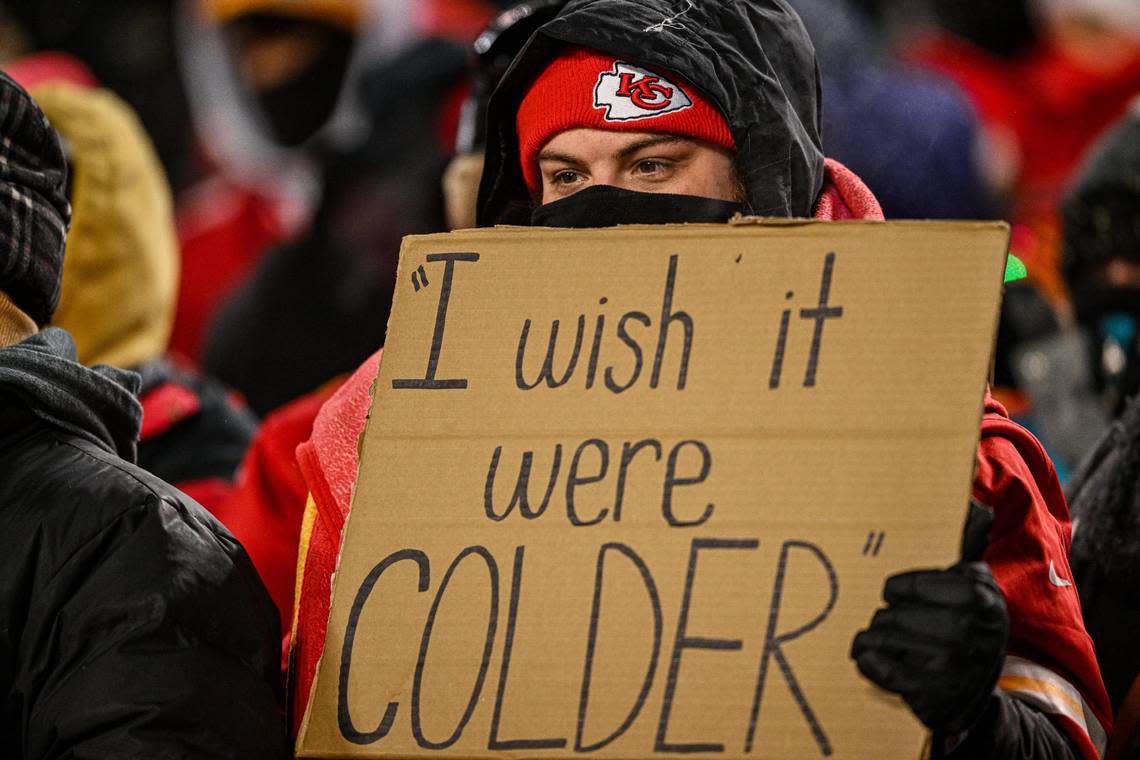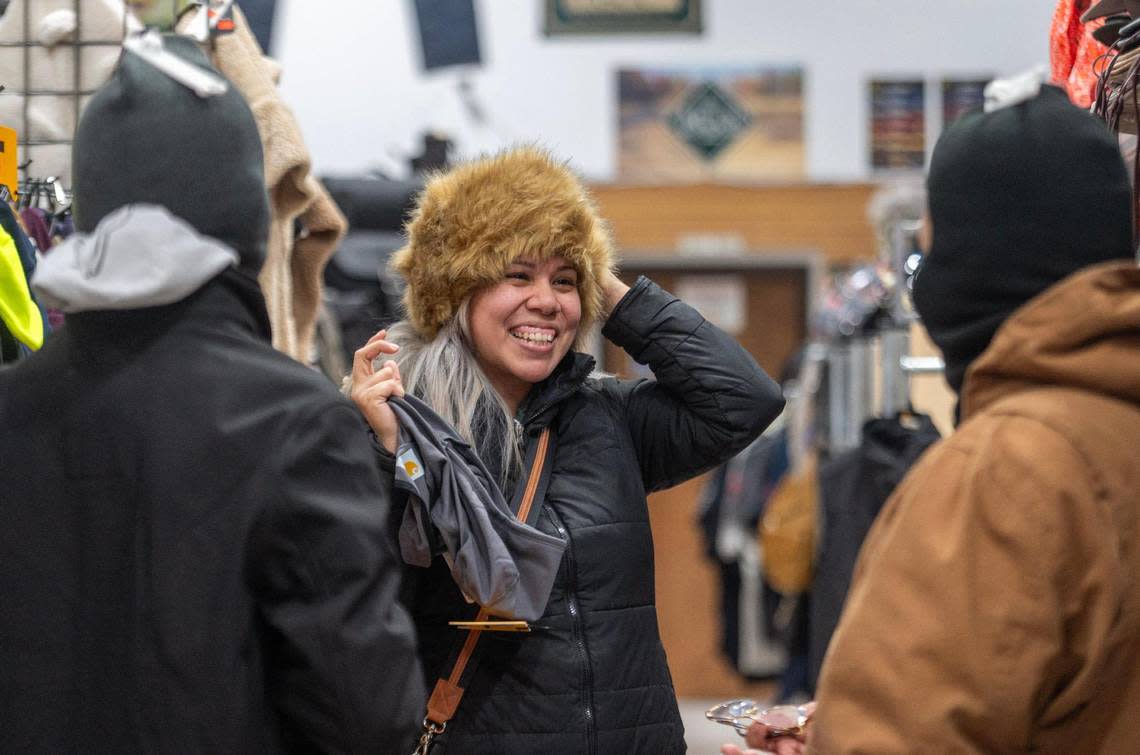KC hospitals treat influx of patients with frostbite, warn of dangers during severe cold
As temperatures nosedived in the Kansas City area this week, hitting record lows of minus 12 on Sunday and minus 16 on Monday, hospitals saw an influx of patients with injuries related to extreme cold, as well as seasonal respiratory illness.
Conditions like frostbite, injuries from vehicle accidents and falls on ice are keeping hospitals busy as Kansas City prepares for another cold stretch, with temperatures forecast to plummet overnight to a low of around 3 degrees with wind chill values between minus 3 degrees and minus 13 degrees.
Since last Tuesday, the University of Kansas Health System has seen 64 patients with weather-related problems. The hospital treated 11 cases of frostbite in the last week, sending 9 severe cases to the Burnett Burn Center. Two of its patients were found outside in the snow last week. One patient was treated and discharged, the other died.
After the Chiefs game Saturday at Arrowhead Stadium, 15 people were hospitalized, including seven for hypothermia and three for frostbite, according to the Kansas City Fire Department.
In all, KCFD received nearly 70 calls for service at the stadium, with about half related to signs of hypothermia as temperatures dropped to minus 6 with a wind chill of minus 27, said Michael Hopkins, a department spokesman.
Other hospitals have also seen an increase in patients with weather-related injuries. At its main campus alone, St. Luke’s Hospital of Kansas City saw 14 patients with cold-related illness since last Friday.

Silent killers
But combating cold injuries is only half the battle, doctors say, as they help patients navigate more silent killers in severe weather — behaviors that can cause fires, carbon monoxide poisoning and heart attacks.
Darryl Nelson, Chief Medical Officer at Centerpoint Medical Center in Independence, said these dangers during the severe cold are often overlooked.
“A couple of the more serious scenarios have been from people’s attempts to keep warm and use alternative and traditional heating methods that aren’t working well,” Nelson said.
Nelson said he’s seen about a 20% increase in weather-related injuries for this time of year across the HCA Healthcare system. With that increase came an uptick in patients who suffered burns from residential fires and exposure to carbon monoxide.
Carbon monoxide is known in the medical field as a “silent killer,” Nelson said, because it is a colorless and odorless gas.
“Carbon monoxide can insidiously start to make you feel sleepy,” Nelson said. “Unfortunately, the common phenomenon is that it builds up while people are asleep, whether it’s in a vehicle or in a home.”
Arguably the hardest case his staff encountered over the past week, he said, was when Centerpoint Medical Center had to treat patients who lost their 3-year-old son in an Independence house fire.
“We received patients from that house fire,” Nelson said. “(We learned) that the youngster lost his life and the other relatives were injured.”
Then on Tuesday, a 4-year-old boy died after a fire at a mobile home and RV park in Kansas City.
HCA Healthcare hospitals, including Research Medical Center, Overland Park Regional Medical Center, Centerpoint and others, saw 11 patients from house fires in the past couple weeks, and treated 15 frostbite injuries in their emergency rooms. Overall, the health system has seen a 26% increase in emergency department admissions during the cold weather.
Preparing for more severe cold
As Kansas City prepares for another stretch of below zero temperatures, hospitals are advising the public to be aware of the damage cold air can have on their bodies, and to take steps to prevent injuries.
Keeping hydrated, wearing multiple layers and being aware of other safe practices to keep warm are important this time of year, Nelson said. Frostbite and hypothermia were the most common conditions hospitals treated over the past week. But doctors also treated heart attacks from people overexerting themselves in the cold weather.
“Folks decide they are going to go out and shovel snow after maybe not having been very active through a good part of the winter,” Nelson said.
“A combination of breathing in the cold and the physical, strenuous labor put a strain on the heart and if you have any sort of underlying heart disease, you are at risk for having a heart attack,” he said.
Hospitals continued to see people for shortness of breath and injuries from exposure this week. That, in addition to people seeking treatment from seasonal respiratory illnesses like influenza and RSV, has resulted in overall higher hospital inpatient numbers.
Since Kansas City is not used to fighting off this kind of bitter cold, Nelson said, it is important for people to understand circumstances that can lead to injuries.
“Being really attentive to your personal body and well-being is important,” Nelson said. “Watch out for your youngsters and your pets.”
“It looks like we got another cold snap coming in, so I don’t think we’re out of the woods yet.”

The Star’s Andrea Klick contributed reporting.
